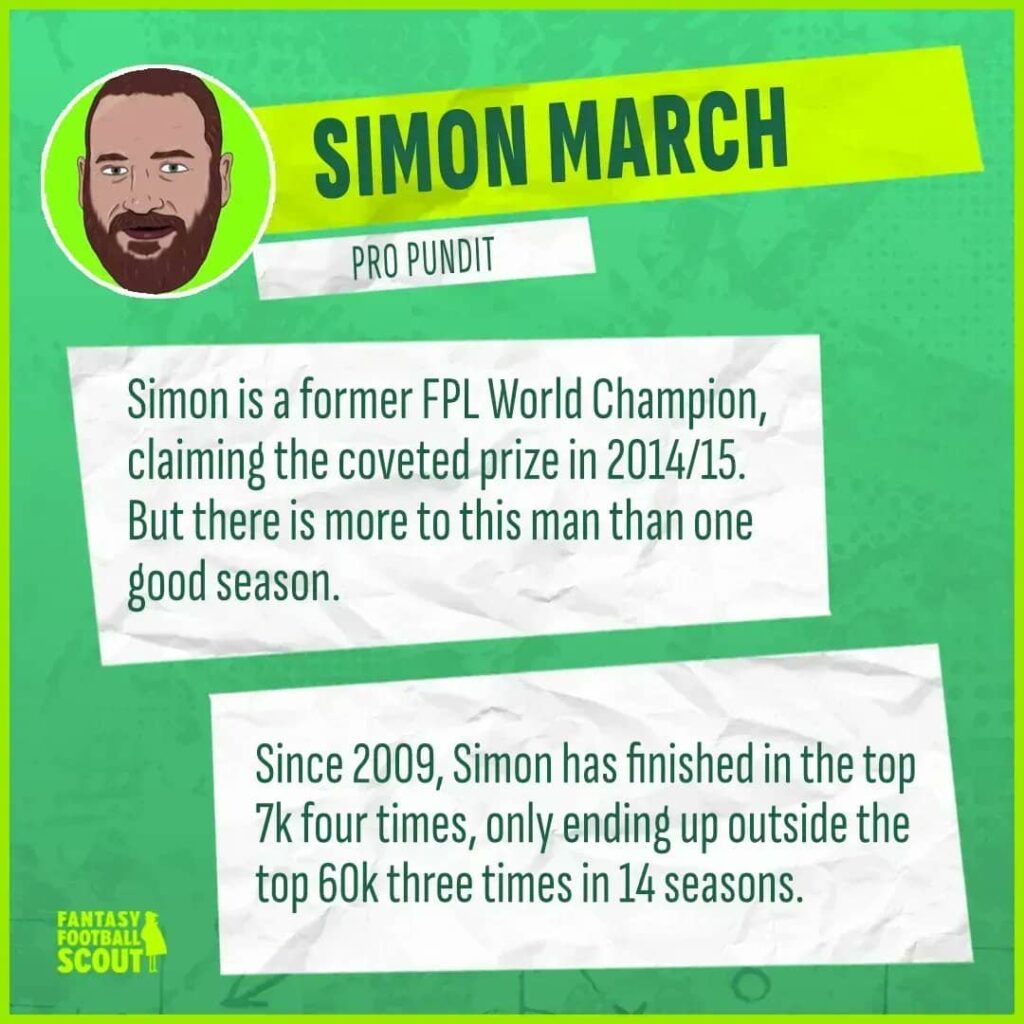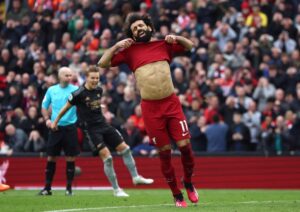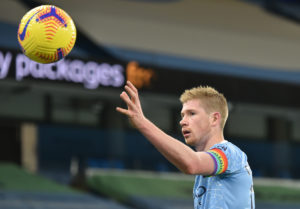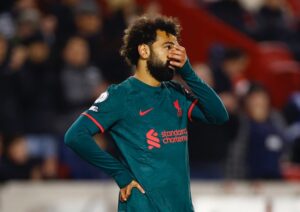With Fantasy Premier League (FPL) underway for 2023/24, we’re welcoming back our team of Hall of Famers and guest writers for the new campaign. Here, former champion Simon March asks whether the possible death of the FPL captaincy debate is good for the game.
Our writers will be providing regular articles and team reveals throughout the new season, with only Premium Members able to access every single one.
You can sign up here for the new campaign – once you’re aboard, you’ve locked in the price of your Premium Membership for good, so long as you don’t cancel!

Selecting a ‘differential captain’ once meant handing the armband to a low-owned player. Now, it means choosing anyone other than Manchester City’s Erling Haaland (£14.0m).
Despite a running style reminiscent of Phoebe in Friends, the Norwegian striker has, for many, made captaincy choice a redundant aspect of FPL. With 36 goals, nine assists and 272 points in his debut Premier League season last year, it’s easy to see why.
With Haaland looking ready to at least repeat last season’s performance it begs the question: should we just give up on differential captains? I say yes, and they will not be missed either.
Ha-La-Land

Deviating from Haaland as captain last season was punished far more frequently and far more harshly than it was typically rewarded. Consequently, the stance going into this season has, for many, been to captain Haaland, irrespective of fixtures, at least until something significant happens to convince us otherwise.
This sentiment was very much reflected in Haaland’s Gameweek 2 ‘effective ownership (EO)’ numbers for Man City’s match against a typically defensively-resolute Newcastle United. Haaland was up around 173%, despite Liverpool’s Mohamed Salah (£12.5m, with an EO of 54%) – arguably the best FPL asset in the game’s history – having one of the most attractive fixtures possible at home to Bournemouth that same Gameweek.
As it turns out, those who did captain Salah were moderately rewarded for their bravery with five points to double compared to Haaland’s two. But a rare blank for Haaland is unlikely to change anybody’s mind going into Gameweek 3 and it’s very likely that his captaincy numbers will be even higher this time around.
Essentially what used to be quite a big and important aspect of FPL, who to captain, has now become largely irrelevant. People have been willing to bet against high EO in the past but now we have probably the best player in the league playing for the best team in the league, delivering points at levels of volume and consistency that we’ve rarely seen before. Why would anyone of sound mind bet against all of that and 180%+ EO?
Maybe it’s an Opportunity

Naturally, some FPL managers will look at all of this and see an opportunity. If such huge proportions of FPL managers are backing a single player each week, then there is undeniably a chance to outperform the masses if you can get your timing right and pick a differential captain in a week where they outperform Haaland.
Ignoring the fact that Haaland rarely blanks, the first problem with this philosophy is the current lack of reliable or explosive enough alternatives to justify the risk, especially following the departure of Harry Kane to Bayern Munich.
Using my own experience as an example for a moment, I had a mediocre season last season by the standards of somebody who takes FPL at least reasonably seriously and this was predominantly driven by the early season period where I ‘strategically’ diverged several times from Haaland as captain.
The standout example of this was when I backed Salah as captain for Liverpool’s home game against ‘new manager Brighton’ (which at the time looked a lot easier than it probably does now) for which I was rewarded with just a solitary assist. The next day, Haaland scored a hat-trick against Manchester United who, on paper at least, appeared a far more difficult opponent.
Eventually, it dawned on me that playing fixtures with captains might be a thing of the past and, once I had finally figured out what everyone else seemed to already know and I started perma-captaining Haaland, my rank started to improve. It turns out that even though I was getting my captain picks wrong, I was still getting enough things right with the rest of my team in order for me to be competitive. I didn’t need to outperform Haaland’s captain points in order to get ahead, I just needed to remove the damage that they were causing me from the overall equation.
This, of course, is just my experience and there are no doubt plenty of similarly anecdotal examples of circumstances where people shifted away from Haaland as captain and it paid off handsomely (the final day of last season will be a popular one, albeit largely because many of us knew that Haaland had been benched). However, based on 2022/23, it looks likely that this strategy will backfire more often than it will succeed. Assuming he at least maintains last season’s levels, Haaland is too consistent with his returns and too explosive with the size of those returns for us to regularly bet against him and still expect to come out on top in the long run.
Is the ‘Death of Captaincy’ Good for FPL?

Personally, I am not mourning the apparent death of captaincy as a factor in FPL. It’s not that I want it gone from the game completely but it’s always felt like a bit of a ‘leveller’ in the sense that you can spend all season diligently building a lead on a rival just for them to captain Kevin De Bruyne (£10.3m) for an otherwise-career-aberrational four-goal haul against Wolverhampton Wanderers and find yourself suddenly behind them.
Choosing a captain is not something that is absent of skill but, in my opinion, it does tend to be over-rewarded compared to the amount of skill the decision requires. Often you are faced with a legitimate 50:50 decision when it comes to captaincy and, whether you are on the wrong or right side of that solitary decision can often translate into 20-30 points won or lost in a single Gameweek, which seems somewhat ludicrous in a purported game of skill.
So, with this in mind, I’m quite happy going into each Gameweek knowing who my captain is going to be and, for the most part, also knowing who everyone else’s captain is going to be because it puts greater emphasis on the rest of the squad and the more meticulous aspects of FPL management like fixture planning, underlying stats analysis and transfer strategy. If you’re the kind of deliberate manager who enjoys investing plenty of time and thought into your FPL decisions, then I’d suggest that Haaland’s monopolisation of the captain’s armband is something you should welcome too.
No Premium on Premium Assets

An additional consequence of Haaland dominating the captaincy is that it has reduced the need for multiple ‘premium’ assets and, as a result, we may actually see more variety between squads given the extra money we have to invest in players. Thus, maybe ironically, by virtue of templatising captaincy in the most ultimate form, we may come to see less templatisation in squads overall, something which, itself, is likely to translate into a more interesting season for many.
Some, of course, have invested in Salah who is, essentially, the only other premium attacking option worth owning in the game right now. But this, itself, is now a strategic decision. Owning Salah will offer a seemingly superior captaincy option in some Gameweeks, but when these Gameweeks come, so will the compulsion to captain him, something which, as we discussed above, can easily backfire in the Haaland era.
Those who do not own Salah will miss out on his inevitably significant points tally, whether he is captained or not, but they are afforded the opportunity to try and match or exceed Salah’s points in the aggregate across their investment in multiple other players, and they will be doing this with more budget than their Salah-owning counterparts will have available to them.
These are the kinds of strategic decisions that have, historically, made FPL fun to play for many managers and, I would argue, it becomes a more interesting prospect than a game oriented around how to fit in as many premium assets as possible so we can rotate captaincy between them.
Who to captain has historically been good for filling FPL column inches (and for making weekends synonymous with anxiety and dread) but it took more than it added in terms of FPL being a game of pure strategy and so, since we pretty much have to own Haaland and, consequently, we have to spend £14.0m on one player, then we might as well let that player solve the captaincy issue for us too.
Throughout the season there will, of course, be situations where there is a strong strategic argument for moving the captaincy away from Haaland. Double Gameweeks are one example, at which point there will hopefully be plenty of options to discuss. Haaland might even decline in form, you never know, but until those situations come about, I think we should be grateful to Haaland for solving the captaincy dilemma for us FPL managers and for freeing us up to think about the many far more interesting aspects of the game.

